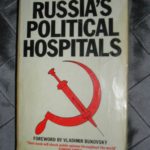The Old Continent is suffering from a deadly illness, an illness of helplessness. Millions of immigrants have come to Europe, mainly from the Middle East and Africa. Other millions are standing at Europe’s gates. In many Western countries small Muslim minorities will soon become large politically influential minorities. For many years the elites lacking in common sense have propagated a model of multicultural society on our continent. As it is, in return for altruism and goodwill, Europeans have been receiving violence and death in terrorist attacks. A clash of civilizations is being fought in London, Hamburg, Barcelona, Paris and Amsterdam. Europe has lost its spirit and the warrior ethos, which it was formerly known for.
We can only look back at the days when in 1683 the coalition of Christian troops under the command of Polish King John III Sobieski defeated the invading Turkish army at the Battle of Vienna and defended Europe against Islam. Those soldiers were imbued with an invincible spirit of their heritage. Polish historian Feliks Koneczny, creator of an original theory of civilization, wrote about the role of the human spirit in history. European and American readers are familiar with Samuel Huntington’s “Clash of Civilizations?”, while the Polish scholar worked out his theory much earlier. Some experts say that Huntington drew on Koneczny’s thought. Continue reading




 What has positive overtones in Poland (patriotism, faith, family), has negative ones in Western Europe and the other way round. Migrants, LGTBQ and gender mainstreaming is not welcome in the area between the Oder and Bug Rivers. The EU values cannot be farther from Poland’s values and vice versa. The Independence March denigrated by the Western media was favourably covered by the Polish government and other national media, except for those which are far to the left and very much pro-European. The former shored up the positive aspects of the event, the latter only looked for incidents to blow them out of any proportion and join the chorus of their western counterparts in condemning “fascists” and “white supremacists”.
What has positive overtones in Poland (patriotism, faith, family), has negative ones in Western Europe and the other way round. Migrants, LGTBQ and gender mainstreaming is not welcome in the area between the Oder and Bug Rivers. The EU values cannot be farther from Poland’s values and vice versa. The Independence March denigrated by the Western media was favourably covered by the Polish government and other national media, except for those which are far to the left and very much pro-European. The former shored up the positive aspects of the event, the latter only looked for incidents to blow them out of any proportion and join the chorus of their western counterparts in condemning “fascists” and “white supremacists”. 












